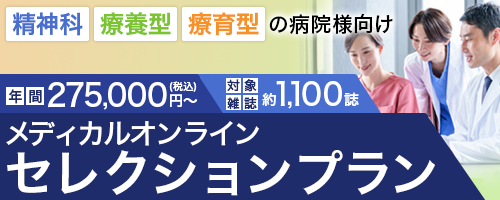アブストラクト
| Title | 疾患を経験した子どものPosttraumatic Growth (心的外傷後成長) に関する文献検討 |
|---|---|
| Subtitle | 資料 |
| Authors | 国分映希*1,2, 本田順子*3 |
| Authors (kana) | |
| Organization | *1淀川キリスト教病院 看護部, *2兵庫県立大学大学院 看護学研究科 博士前期課程, *3兵庫県立大学 |
| Journal | 日本小児看護学会誌 |
| Volume | 32 |
| Number | |
| Page | 213-222 |
| Year/Month | 2023 / |
| Article | 報告 |
| Publisher | 日本小児看護学会 |
| Abstract | 「抄録」本研究の目的は, 文献検討を通して疾患を経験した子どものPTGに関する研究の動向やPTGと関係する要素を明らかにし, 今後の研究課題や子どものPTGの向上の一助となる看護を検討することである. 文献36件を分析したところ, 研究の実施国はアメリカが最も多く, 日本は全体の6%に満たなかった. 研究対象者の疾患はがんなどの重症度が高く慢性化をたどる可能性の高い疾患のみであった. 研究方法は量的研究が最も多かった. 疾患への認識の仕方やソーシャルサポートなどの心理社会的状況, 積極的コーピングなどがPTGを高める要因となっており, PTGの向上に貢献するためにはこうした要因に注目した看護を行う必要性が示唆された. PTGは社会文化的背景の影響を受けるため, 今後は我が国において多様な疾患を経験した子どもを対象に質的研究や介入研究を行い, 幅広い知見の獲得と看護援助に関する示唆を得ることが課題である. |
| Practice | 看護学 |
| Keywords | 心的外傷後成長, 小児, 看護, 文献検討, posttraumatic growth(PTG), child, nursing, literature review |
- 全文ダウンロード: 従量制、基本料金制の方共に770円(税込) です。
参考文献
- Devine, K. A., Reed-Knight, B., & Loiselle, K. A., et al. (2010). Posttraumatic growth in young adults who experienced serious childhood illness: A mixed-methods approach. J Clin Psychol Med Settings, 17(4), 340-348. doi: 10.1007/s10880-010-9210-7
- January, A. M., Zebracki, K., & Chlan, K. M., et al. (2015). Understanding post-traumatic growth following pediatric-onset spinal cord injury: The critical role of coping strategies for facilitating positive psychological outcomes. Developmental Medicine and Child Neurology, 57(12), 1143-1149. doi: 10.1111/dmcn.12820
- Kay, J. S., Juth, V., & Silver, R. C., et al. (2019). Support and conflict in relationships and psychological health in adolescents and young adults with cancer. Journal of Health Psychology, 24(4), 502-517. doi: 10.1177/1359105316676629
- Kazak, A. E., Kassam-Adams, N., & Schneider, S., et al. (2006). An integrative model of pediatric medical traumatic stress. Journal of Pediatric Psychology, 31(4), 343-355. doi: 10.1093/jpepsy/jsj054
- Michel, G., Taylor, N., & Absolom, K., et al. (2010). Benefit finding in survivors of childhood cancer and their parents: Further empirical support for the Benefit Finding Scale for Children. Child: Care, Health and Development, 36(1), 123-129. doi: 10.1111/j.1365-2214.2009.01034.x
残りの7件を表示する
- Tedeschi, R. G., & Calhoun, L. G. (1996). The posttraumatic growth inventory: Measuring the positive legacy of trauma. Journal of Traumatic Stress, 9(3), 455-471. doi: 10.1002/jts.2490090305
- Tedeschi, R. G., & Calhoun, L. G. (2004). Posttraumatic growth: Conceptual foundations and empirical evidence. Psychological Inquiry, 15(1), 1-8.
- Tedeschi, R. G., Shakespeare-Finch, J., & Taku, K., et al. (2018). Posttraumatic Growth: Theory, research, and applications. Routledge.
- Tremolada, M., Bonichini, S., & Basso, G., et al. (2018). Adolescent and young adult cancer survivors narrate their stories: Predictive model of their personal growth and their follow-up acceptance. European Journal of Oncology Nursing, 36, 119-128. doi: 10.1016/j.ejon.2018.09.001
- Weinstein, A. G., Henrich, C. C., & Armstrong, G. T., et al. (2018). Roles of positive psychological outcomes in future health perception and mental health problems: A report from the childhood cancer survivor Study. Physiology, 27(12), 2754-2760. doi: 10.1002/pon.4881
- Yi, J., Zebrack, B., & Kim, M. A., et al. (2014). Posttraumatic growth outcomes and their correlates among young adult survivors of childhood cancer. Journal of Pediatric Psychology, 40(9), 981-991. doi: 10.1093/jpepsy/jsv075
- Yonemoto, T., Kamibeppu, K., & Ishii, T., et al. (2009). Psychosocial outcomes in long-term survivors of high-grade osteosarcoma: A Japanese single-center experience. Anticancer Research, 29(10), 4287-4290.



